Panel discussion: cryopreservation in cell and gene therapy
RegMedNet’s Spotlight survey has picked the brains of researchers far and wide, gaining insight into the world of cryopreservation in cell and gene therapy. This panel will be an opportunity for various stakeholders within the field to come together to sit down and discuss a selection of topics sourced from the survey.
How are members of the industry using cryopreservation in their current workflows? How can cell therapy researchers and manufacturers ensure they are using the highest quality cryoprotectants correctly in their protocols? Find out in this webinar!
This webinar was recorded on 29 September 2022.
What will you learn?
- The main techniques and technologies currently being used in cryopreservation for cell and gene therapy
- The greatest challenges faced in cryopreservation
- Areas with potential for growth and optimization in cryopreservation
- How technologies for cryopreservation in cell and gene therapy may evolve in the coming years
Who may this interest?
- Researchers, developers, manufacturers of cell therapies
- Individuals with an interest in cryopreservation and its applications
- Cell and gene therapy process engineers
Panellists
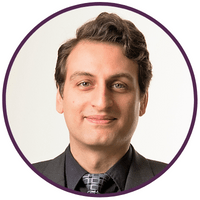
Alireza Abazari
Associate Director of Process Development
Pluristyx, Inc.
Alireza Abazari is Associate Director of Process Development at Pluristyx, Inc. (WA, USA), an advanced therapy tools company providing seamless client support to cell therapy groups through CMC consulting, contract development services and research, as well as clinical-grade Ready-To-Differentiate® (RTD®) Pluripotent Stem Cells and their differentiated Progeny.
Abazari is a formally trained cryobiologist who received his PhD in Chemical Engineering from the University of Alberta (Canada) and completed his postdoctoral training in cryobiology at the Center for Engineering in Medicine at Harvard Medical School and Massachusetts General Hospital (both MA, USA).
Abazari previously served as Scientific Applications Director at BioLife Solutions (WA, USA), where he aided numerous commercial groups in the optimization of cryopreservation protocols for their cell therapy products. Prior to joining Pluristyx in 2021, Alireza was a Senior Scientist at Lyell Immunopharma (CA, USA) in the Process Development Department, where he was responsible for setting up the process development lab with a particular focus on drug product formulation and cryopreservation.
Abazari is an active member of numerous professional organizations and was a taskforce member for the recent Cryopreservation Standards document published by the American National Standards Institute (ANSI) and the Parenteral Drug Association (PDA).
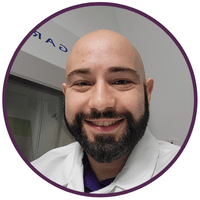
Nick Amoroso
Analytical Method Development scientists
Cook Myosite
Nicholas Amoroso is the Analytical Methods Development department manager at Cook Myosite (PA, USA). He completed his PhD in Bioengineering at the University of Pittsburgh (PA, USA) where he focused on biomaterials and regenerative medicine.
He has been active in the pharmaceutical and biopharmaceutical industry for the past 8 years. He joined Cook MyoSite in late 2017, where he focuses on helping the department develop analytical methods for clinical investigational cell therapy products as well as laboratory research products.
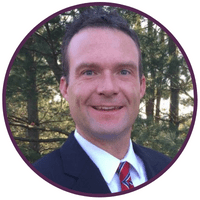
Bob Newman
Chief Scientific Officer
FUFJIFILM Irvine Scientific, CA, USA
As the Chief Scientific Officer for FUJIFILM Irvine Scientific (CA, USA), Robert Newman leads scientific strategy, drives global product development and expands research and development (R&D) capability for the company. He was previously Senior Director for R&D at American Type Culture Collection (VA, USA) and R&D Manager Stem Cells at BD (NJ, USA), and holds a Ph.D. in Biochemistry and Molecular Biology from Georgetown University (Washington, D.C., USA).
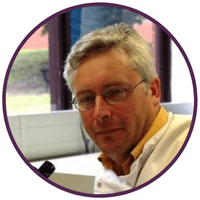
Glyn Stacey (PhD, Prof.)
Director, International Stem Cell Banking Initiative (UK)
CEO, SSCBio Ltd (UK)
President’s International Fellowship Initiative, Institute of Zoology (Beijing, China)
Glyn Stacey is Director for the International Stem Cell Banking Initiative based in the UK and, together with the ISCBI Board and Steering Group, organizes regular international meetings which bring together experts in the field of pluripotent stem cells to discuss best practice in their use for basic research, cell therapy development and other applications.
Glyn also holds a position as a President’s International Fellowship Investigator with the Institute of Zoology at the Chinese Academy of Sciences (IOZ-CAS; Beijing, China); in this role, he advises the National Stem Cell Resource Center and the Institute for Stem Cells and Regeneration in their work on development of cell therapies based on pluripotent stem cells. Glyn is also the CEO of the biosciences consultancy SSCBio Ltd (UK), which provides advice and support internationally to a broad range of government institutes and private not-for-profit organizations.
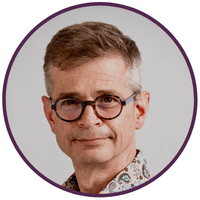
Robert Ben
Professor of Biopharmaceutical Science and Biomedical Science
The University of Ottawa (ON, Canada)
Robert Ben obtained his undergraduate degree in biochemistry from Laurentian University (ON, Canada) in 1990 and obtained his PhD in synthetic organic chemistry at the University of Ottawa (ON, Canada) in 1994. After a postdoctoral position at the University of Toronto (ON, Canada) from 1994-1996 he accepted a Research Associate position at the Steacie Institute of Molecular Sciences at the National Research Council of Canada in Ottawa. In 1998, he started his independent research career as an Assistant Professor in the Department of Chemistry at the State University of New York at Binghamton (NY, USA). During the summer of 2003, he joined the Chemistry Department at the University of Ottawa with a Canada Research Chair in Medicinal Chemistry. In 2013, he became Director for the Biopharmaceutical Science and Biomedical Science programs at the University of Ottawa and was promoted to Full Professor in 2015. Ben’s research interests are interdisciplinary in nature (organic synthesis, bioorganic chemistry, carbohydrates, peptides, cryobiology) with the main focus being the rational design and synthesis of new cryoprotectants that function by inhibiting ice recrystallization during cryopreservation or vitrification. These cryoprotectants are used to cryopreserve progenitor cells and tissues for emerging cellular therapies.
